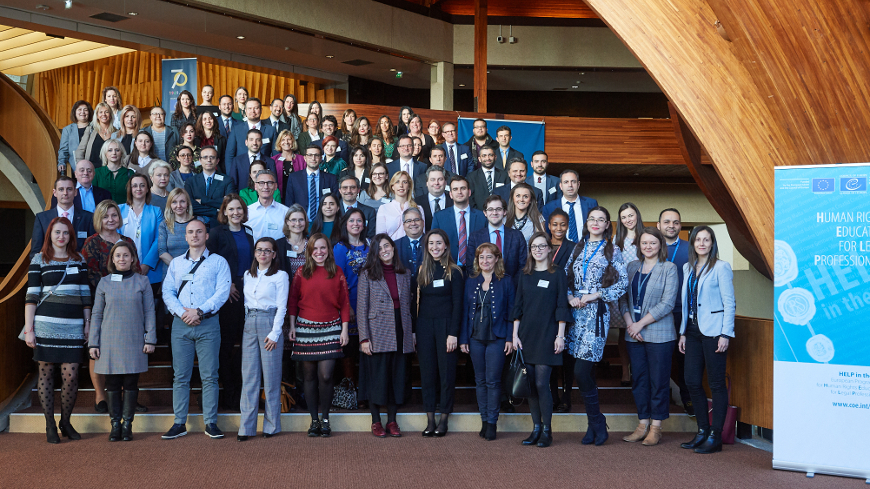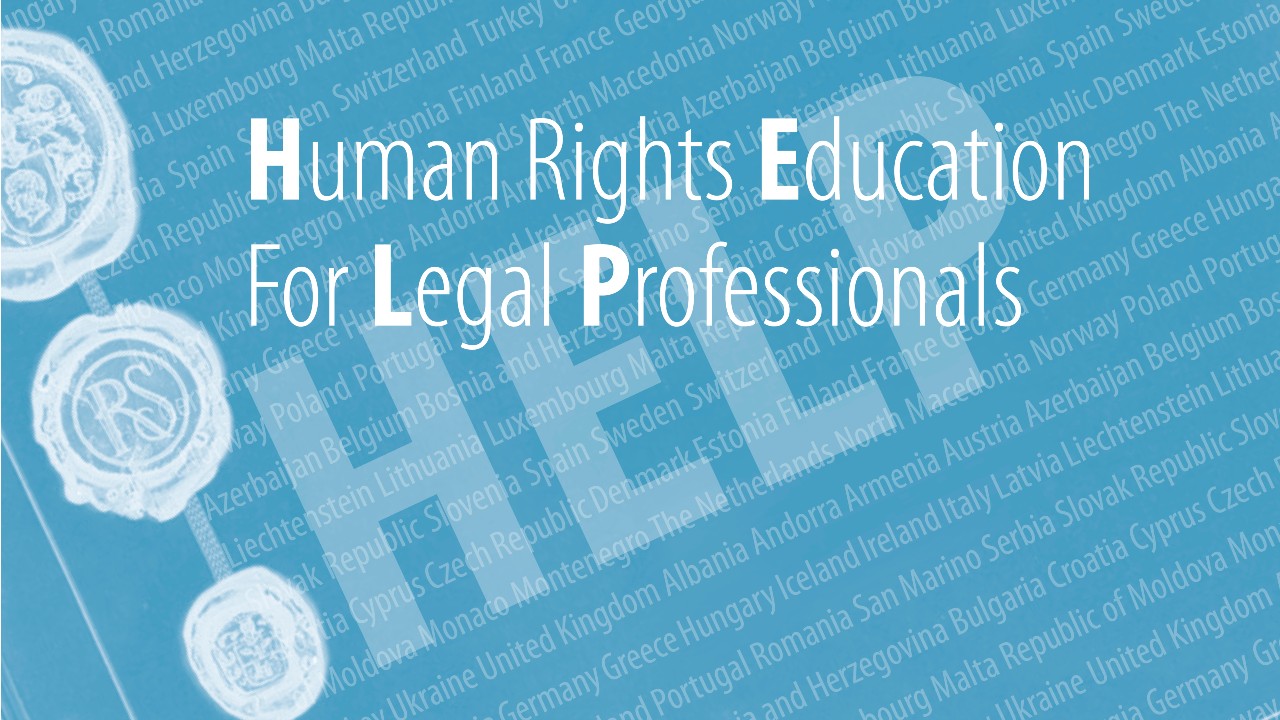Under the EU-Council of Europe “HELP in the EU” Project, 75 judges and prosecutors and lawyers from 12 EU member states met in Strasbourg on 7 and 8 March 2019 for a seminar on bioethics and the launch of the HELP course.
The seminar was held at the premises of the Council of Europe. Alongside current challenges in the field of biomedicine, the programme included sessions on European case law - from the European Court of Human Rights but also from key EU member states - and the relevant European framework - the Convention for the Protection of Human Rights and Dignity of the Human Being with regard to the Application of Biology and Medicine (known as Oviedo Convention). The participants got familiarised with the Human Rights Education for Legal Professionals (HELP) Programme of the Council of Europe and its e-learning platform containing more than 30 online courses. They were also introduced to the tutors who will accompany them in the implementation of the course for the following 3 months, namely Julia Kapelanska Pregowska, assistant professor at the Chair of Human Rights in Nicolaus Copernicus University (Poland); Fabio Macioce, Professor at Lumsa University (Italy) and co-author of the HELP course; Adalberto de la Cruz Correa, judge in Civil Court of Arrecife (Spain) and Ine de Conink, former lawyer at the European Court of Human Rights.
A live stream of the seminar was provided and the recorded sessions are available below.
The seminar started with opening speeches from Christophe Poirel, Director of Human Rights, Mikhail Lobov, Head of the Human Rights Policy and Co-operation Department, Laurence Lwoff, Head of the Bioethics Unit, and Eva Pastrana, Head of the HELP Programme of the Council of Europe. Ana-Maria Telbis, coordinator of the EU-Council of Europe project “HELP in the EU” presented the HELP Programme and the project. The morning session continued with a visit to the European Court of Human Rights and a comprehensive overview of the European Court’s case law on bioethics and health related aspects which impacted the national systems, bringing positive change, given by Ana Vilfan Vospernik, senior lawyer at the Research Division of the Registry of the European Court of Human Rights.
The afternoon session started with a presentation from Jean-René Binet, Professor at the Law Faculty in Rennes, who addressed current challenges related to biomedicine and human rights. He provided examples of legislative practice from France in the field of bioethics, highlighting the manner in which the French authorities addressed several challenges at national level. Among the issues raised were intersex children, medically assisted procreation, genetical research and testing as well as research on embryos and surrogacy pregnancies.
Katrin Uerpmann, Council of Europe Bioethics Unit, presented an overview of the Council of Europe work in the area of biomedicine, referring to the relevant standards and their implementation. She highlighted the way it translates into the national practice and also how it relates to the other mechanisms of the Council of Europe, emphasising the importance and the relevance of the Oviedo Convention in addressing current challenges in Europe and beyond.
The participants were introduced to the HELP course on Key Human Rights Principles in Biomedicine.
The second day included presentations on free and informed consent by Ronalds Rozkalns, attorney at law, Latvia, on genetic testing and biomedical research by Professor Fabio Macioce, as well as on transplantation of human organs and tissues by Katrin Uerpmann.
The tutors who will accompany the groups of participants in the implementation of the course explained to the participants how the course will be implemented and also pinpointed some practical challenges in the field of biomedicine, for participants to reflect upon and follow up in their exchanges during the course. The participants also had the possibility to share their expectations from the course and showed high motivation to contribute to the exchange of ideas and opinions on the online course page opened for them. The participants who successfully complete the course launched under the joint EU-Council of Europe project will receive HELP certificates issued by the Council of Europe.
The HELP course on Key Human Rights Principles in Biomedicine is also available to any legal or medical professional interested in the topic, in the self-learning part of the HELP e-learning platform, in English, and will soon be made available in French, German, Italian, Romanian and Spanish.

“HELP in the EU” cross border launch of the course Key Human Rights Principles in Biomedicine. © Council of Europe
HELP course on Key human rights principles in biomedicine
Seminar recorded sessions





